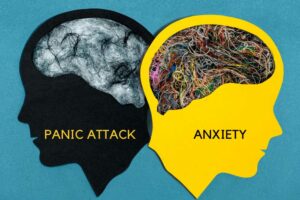If you’re looking to address consistent negative feelings like anger or stress, it’s important that you consider the different treatment options available to you. While finding healthier emotional outlets might not rank at the top of your list of priorities, making changes to the way you process stressful situations can impact your entire life.
Cognitive Behavioral Therapy, or CBT, is an increasingly common modality of treatment that many people have found to be a powerful way to improve themselves and their lives. Exploring the possibilities that CBT has to offer can give you a glimpse at just how life-changing this method can be.
What Problems Can Cognitive Behavioral Therapy Address?
CBT is a widely accessible form of treatment with a highly diverse range of intended patients in different situations. CBT can help people struggling with addiction, drug or alcohol abuse, and the related complications that can arise due to these issues. CBT has proven to be particularly effective in addressing psychological conditions including mental illness, depression, stress, anger, anxiety, and a host of other problems that affect how you think and feel about yourself and about the people around you. Many practitioners also employ CBT to help people process and move through trauma.
The beneficial applications of CBT are practically limitless. No matter how large or impossible your problems may seem to be, CBT is a powerful tool that can help you to put things into perspective and attain a more productive outlook on life.
How Can Cognitive Behavioral Therapy Help Me?
CBT can help you to take negative thought patterns and emotional reactions and replace them with more positive ones. It can help you to improve the way that you process and solve the problems that you face in all areas of life. CBT is also good for developing coping skills and improving how you deal with challenging situations in a healthy manner. Like with any form of treatment, the more that you put into its practice and open up your mind to the possibilities of this modality, the greater your possibilities of achieving more favorable outcomes.
What Does Cognitive Behavioral Therapy Involve?
The core of CBT is to learn to assess your thoughts and emotions as they occur without having to act on them right away. CBT involves the practice of techniques to develop a healthy distance from your inner monologue, allowing you to acknowledge them and choose which ones to act upon with mindfulness and care. This doesn’t mean you’re shutting yourself off from negative emotions; it simply means you’re not letting them dictate your life any more.
CBT sessions can also involve exercises that take you through different scenarios that may occur in your life, giving you the chance to identify potential sources of negativity and practice using CBT techniques to maintain emotional stability. A large part of CBT also relies on your personal use of these techniques in your everyday life, ensuring that you regularly work on improving your thought patterns.
Which Facilities Offer Cognitive Behavioral Therapy?
CBT is a specialized service that benefits most when practiced under professional guidance. Though it has proven to be a highly effective form of treatment, some health facilities do not yet offer CBT. Some of the most likely places to practice CBT include hospitals, recovery centers, addiction facilities, mental health clinics, and other institutions that offer specialized services and treatments in support of mental health. You may have to do further research and reach out to different facilities to see if they offer CBT.
Is Cognitive Behavioral Therapy Compatible With Other Services?
CBT is a flexible, effective means of self-improvement that has shown particular potency when combined with other forms of mental health services, such as group therapy or medication. If you’ve already developed a relatively robust regimen of treatment, CBT can serve to fill in the cracks between your other efforts and allow you to develop a consistently stable and healthy emotional state as you work on yourself in other ways. On the other hand, if you’re just beginning to assemble your plan of treatment, CBT can act as a major building block in the foundation of your longterm mental health.
Is Cognitive Behavioral Therapy Right for Me?
CBT has proven to be a powerful form of treatment for many people, especially when combined with other forms of mental health services. No two people respond to treatment the same way, so consult with your doctor or therapist to assess whether CBT may be right for you. The potential downsides are essentially nonexistent, making it well worth your time to consider trying out this form of therapy. Even if the treatment doesn’t completely solve your problems, many find the exercises and lessons learned through the practice of CBT to be widely useful in managing their emotions and developing mental stability over the course of their lives.
Cognitive Behavioral Therapy can help you to work through many different types of problems, either as the core of your treatment or in combination with other forms of mental health services. Learning about the options available to you is key to choosing the best path of treatment for your unique circumstances. Promising Outlook is a rehab facility located in Riverside, California. We offer a variety of treatments to address challenges including addiction, substance abuse, relapse, anger management, stress, and trauma. We provide a wide range of therapy modalities, incluing Cognitive Behavioral Therapy (CBT), Dialectical Behavioral Therapy (DBT), building up problem-solving skills, and life planning. We believe in treating each person as an individual and aim to provide the best care possible while supporting you on your journey to a better version of yourself. To learn more about how we can help, call us at 866.980.2869. We look forward to working with you to make a lasting difference in your life.






